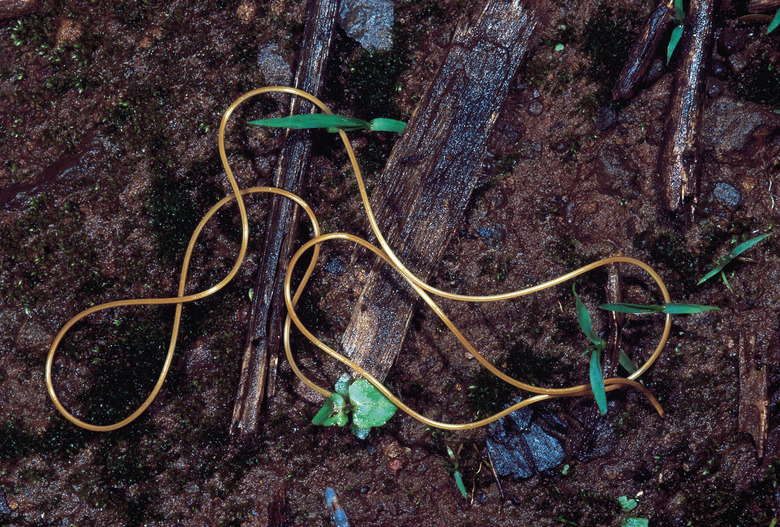Bizarre 'Mind-Controlling' Parasitic Worm Lacks Genes Found In Every Known Animal
Our world is full of bizarre and intriguing creatures. One of the strangest, though, is the hairworm, a parasitic worm known as a "mind control worm" in some circles. These parasitic worms are found all over the world, and they look similar to thin strands of spaghetti, usually measuring a couple of inches long. However, their bodies and genes hint at the parasitic lifestyle that they live.
Hairworms are called mind control worms because they are able to affect the behavior of the hosts that they inhabit. This allows them to make the host do things that it might not normally do. There are a few hundred different species of these freshwater hairworms, and the process they follow to grow up is intriguing and also terrifying, too.
But what's most intriguing about them today is the new research published in Current Biology that digs deeper into the genes that make up these parasitic little creatures. The researchers set out to sequence the hairworms' genomes because nothing like it had ever been sequenced at that level, Phys.org reports.
What they found has left the researchers baffled and even wondering if they somehow made a mistake. That's because the genome sequences from the hairworm show that these parasitic mind control worms are missing 30 percent of the gens they were expected to have. The same genes are found in practically every animal known to mankind.
To determine if they had missed something, the researchers checked their results against another species of hairworm and found that the second species was also missing the same sets of genes. The loss of these genes suggests that the worms lost those genes long ago due to some evolutionary trait.
The belief is that these parasitic worms don't need those functions themselves as they can rely on their host to provide those functions, thus allowing them to evolve from having it in their genes, too. It's an intriguing find and one that will hopefully help us determine more about these intriguing little parasites.
Parasitic creatures like hairworms aren't uncommon. Some parasites can even make you have sex to spread it, according to some studies, while others, like the hairworm, simply force the host to jump in the water so that it can leave and mate with other hairworms.
